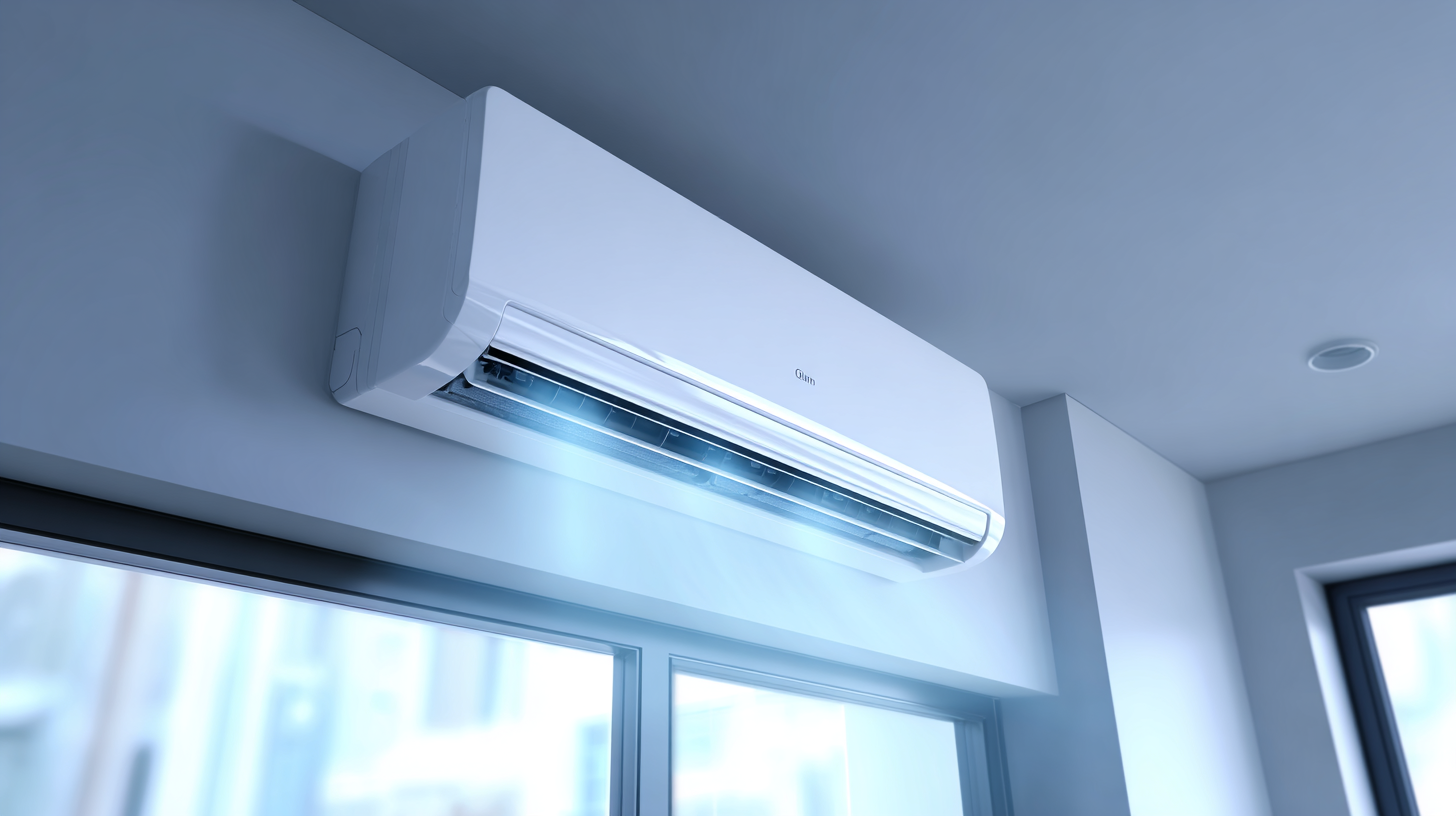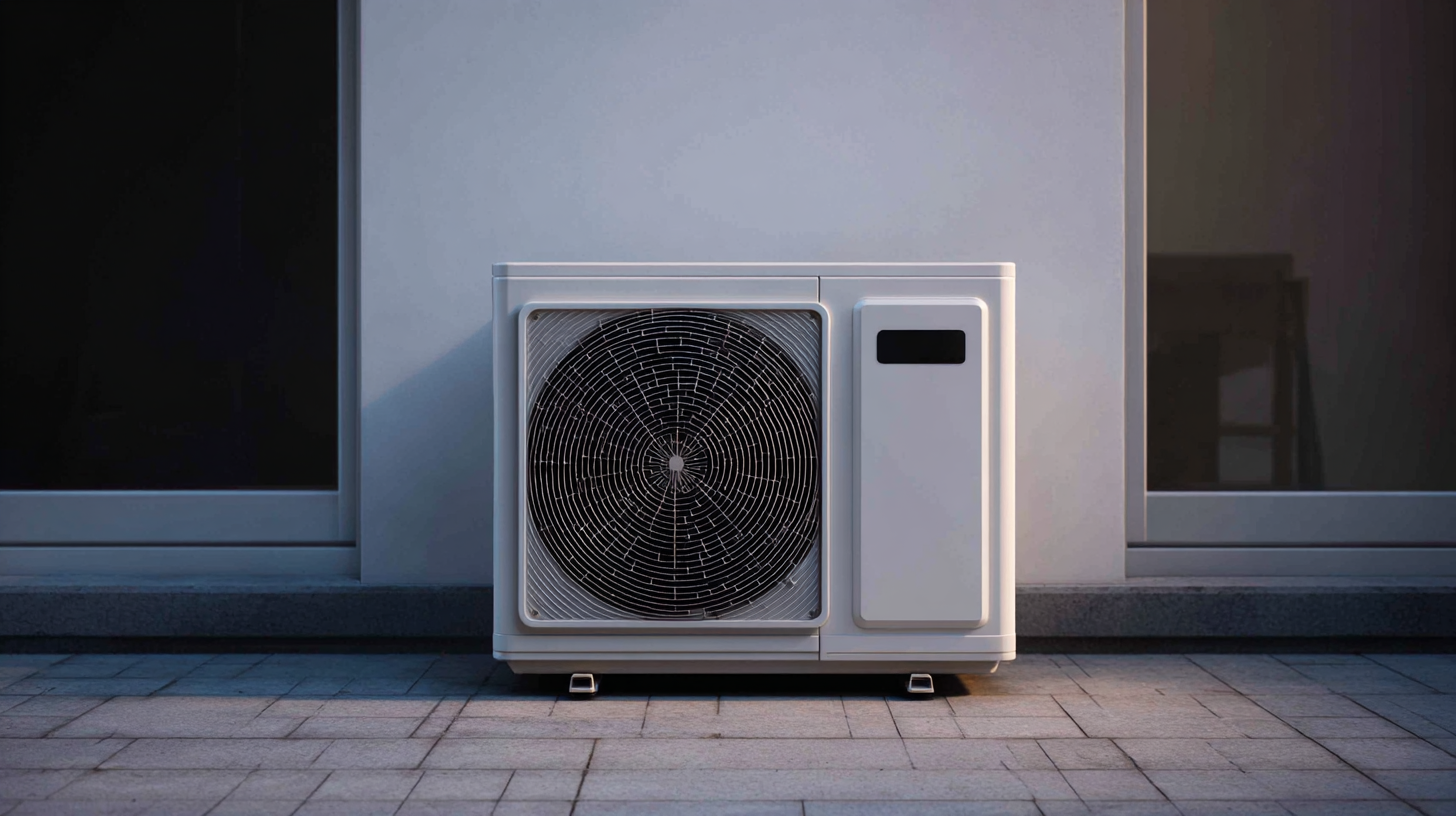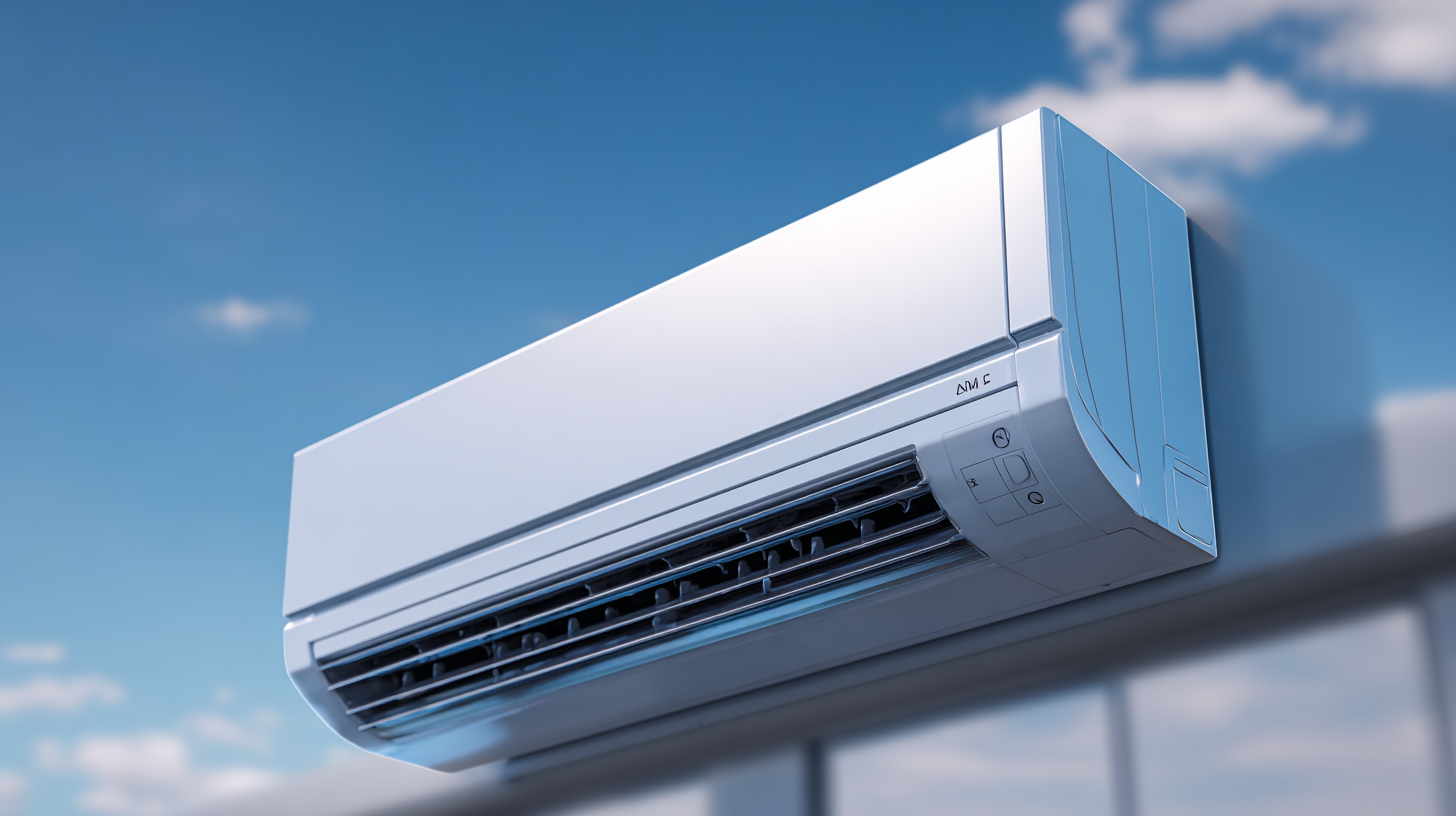Leave Your Message
Choosing the right Monoblock Air Conditioner can significantly enhance your energy efficiency while ensuring optimal comfort in your living or working space. With a growing emphasis on sustainability and reducing energy consumption, understanding the various types and features of Monoblock Air Conditioners is crucial for making an informed decision.
 These compact units integrate the condenser and evaporator into a single unit, offering streamlined installation and maintenance. As energy efficiency ratings become increasingly important in our environmentally conscious society, it is essential to evaluate different models and technologies to find the one that best fits your energy needs and budget.
This guide will provide valuable insights into selecting the most suitable Monoblock Air Conditioner, taking into account factors such as size, capacity, and energy efficiency ratings, ultimately leading to a more comfortable and eco-friendly living environment.
These compact units integrate the condenser and evaporator into a single unit, offering streamlined installation and maintenance. As energy efficiency ratings become increasingly important in our environmentally conscious society, it is essential to evaluate different models and technologies to find the one that best fits your energy needs and budget.
This guide will provide valuable insights into selecting the most suitable Monoblock Air Conditioner, taking into account factors such as size, capacity, and energy efficiency ratings, ultimately leading to a more comfortable and eco-friendly living environment.
When choosing a monoblock air conditioner for optimal energy efficiency, several key factors need to be considered. First, the Energy Efficiency Ratio (EER) is crucial; a higher EER indicates better energy performance. Look for models with an EER of 12 or higher, as these units use less electricity while providing effective cooling. Additionally, consider the Seasonal Energy Efficiency Ratio (SEER), which accounts for fluctuations in energy performance across different seasons, ensuring that the unit remains efficient year-round.

Another important aspect is the size of the air conditioner. Selecting the correct BTU (British Thermal Unit) rating is essential for achieving the desired cooling effect without wasting energy. An undersized unit will struggle to cool the space efficiently, while an oversized unit will cycle on and off more frequently, leading to energy wastage.
Proper insulation and sealing of the space also play a vital role in enhancing energy efficiency, as they help maintain the desired temperature and reduce the load on the air conditioner. By carefully evaluating these factors, you can select a monoblock air conditioner that meets your energy efficiency needs effectively.
When selecting a monoblock air conditioner, understanding the Seasonal Energy Efficiency Ratio (SEER) is crucial for ensuring optimal performance and energy savings. SEER measures the cooling output divided by the energy consumed during the cooling season. According to the U.S. Department of Energy, a higher SEER rating indicates a more energy-efficient unit. For example, air conditioners with a SEER rating of 16 or above can reduce energy consumption by up to 50% compared to older models with a SEER of 10.

In recent years, the market has seen a trend towards higher SEER ratings due to advancements in technology and growing awareness of climate impact. A study by the Air-Conditioning, Heating, and Refrigeration Institute (AHRI) noted that units with SEER ratings above 20 are becoming increasingly popular, especially in regions with long cooling seasons. Thus, consumers looking for energy efficiency should prioritize these models. Not only do they provide cost savings on energy bills, but they also contribute to a reduced carbon footprint, aligning with global efforts towards sustainability.
When selecting an air conditioning unit, energy efficiency plays a crucial role in both performance and cost savings. Monoblock air conditioners have gained popularity due to their compact design and effective cooling capabilities. According to the U.S. Department of Energy, monoblock systems can deliver higher energy efficiency ratings (EER) compared to traditional split units, potentially reducing energy consumption by 20% to 30%. This translates to significant savings on electricity bills over time.
**Tips:** Consider the Energy Efficiency Ratio (EER) of the monoblock unit. A higher EER means better energy efficiency, which is especially beneficial during peak summer months. Additionally, look for Energy Star certification, as these models meet rigorous energy efficiency guidelines.
When comparing monoblock units to traditional air conditioning, it's essential to evaluate the overall energy consumption. Traditional systems often require more energy due to multiple components, which can lead to higher operating costs. A study by the Energy Efficiency Partnership highlights that homes equipped with monoblock air conditioners can expect an annual energy savings of approximately 15% to 25% compared to those using traditional central air systems. This makes monoblock units a compelling choice for homeowners seeking both comfort and sustainability.
**Tips:** Regular maintenance, such as cleaning filters and ensuring proper installation, can further enhance energy efficiency, allowing you to make the most of your monoblock air conditioner’s performance.
| Air Conditioner Type | Cooling Capacity (BTU) | Energy Consumption (kWh/Year) | Energy Efficiency Ratio (EER) | Estimated Annual Cost ($) |
|---|---|---|---|---|
| Monoblock Air Conditioner | 12000 | 750 | 16 | 90 |
| Traditional Split AC | 12000 | 900 | 13.33 | 110 |
| Portable Air Conditioner | 12000 | 850 | 14.12 | 100 |
| Window Air Conditioner | 12000 | 800 | 15 | 95 |
When considering the energy efficiency of monoblock air conditioners, the choice of refrigerants plays a crucial role. Modern refrigerants with lower global warming potential (GWP) not only contribute to environmental sustainability but also enhance the overall efficiency of cooling systems. For instance, the introduction of refrigerants like R32 has shown improvements in energy performance and reduced impact on climate change, making them preferable for new installations.
Tips for selecting the right monoblock air conditioner include checking the refrigerant type and its efficiency ratings. Look for units that utilize advanced refrigerants to ensure better performance and lower operational costs. Understanding coefficients of performance (COP) is essential; a higher COP indicates a more efficient system. For example, some recent models boast COPs above 4.0, which can lead to significant energy savings over time.
Another important consideration is the system's capacity and compatibility with existing infrastructure. It's advisable to consult with professionals who can provide insights into the most suitable options. Choosing well-designed systems that feature integrated solutions can further maximize energy efficiency while minimizing environmental impact.
When evaluating the cost-benefit of investing in energy-efficient monoblock air conditioners, it's crucial to consider not only the initial purchase price but also the long-term savings on utility bills. According to a report by the U.S. Department of Energy, energy-efficient appliances can reduce electricity consumption by up to 30%. This translates to significant savings over time; for instance, a high-efficiency monoblock air conditioner can save homeowners approximately $400 annually compared to standard models.
Moreover, the efficiency ratings, measured in Seasonal Energy Efficiency Ratio (SEER), are an essential factor. A monoblock air conditioner with a SEER rating of 15 or higher is often deemed energy-efficient. According to the Air-Conditioning, Heating, and Refrigeration Institute (AHRI), upgrading to a unit with a SEER rating of 16 from one with a rating of 10 can lead to a 30% reduction in cooling costs. Thus, while the upfront investment might be higher, the long-term energy savings, coupled with the reduced environmental impact, make these units a smart choice for energy-conscious consumers.
